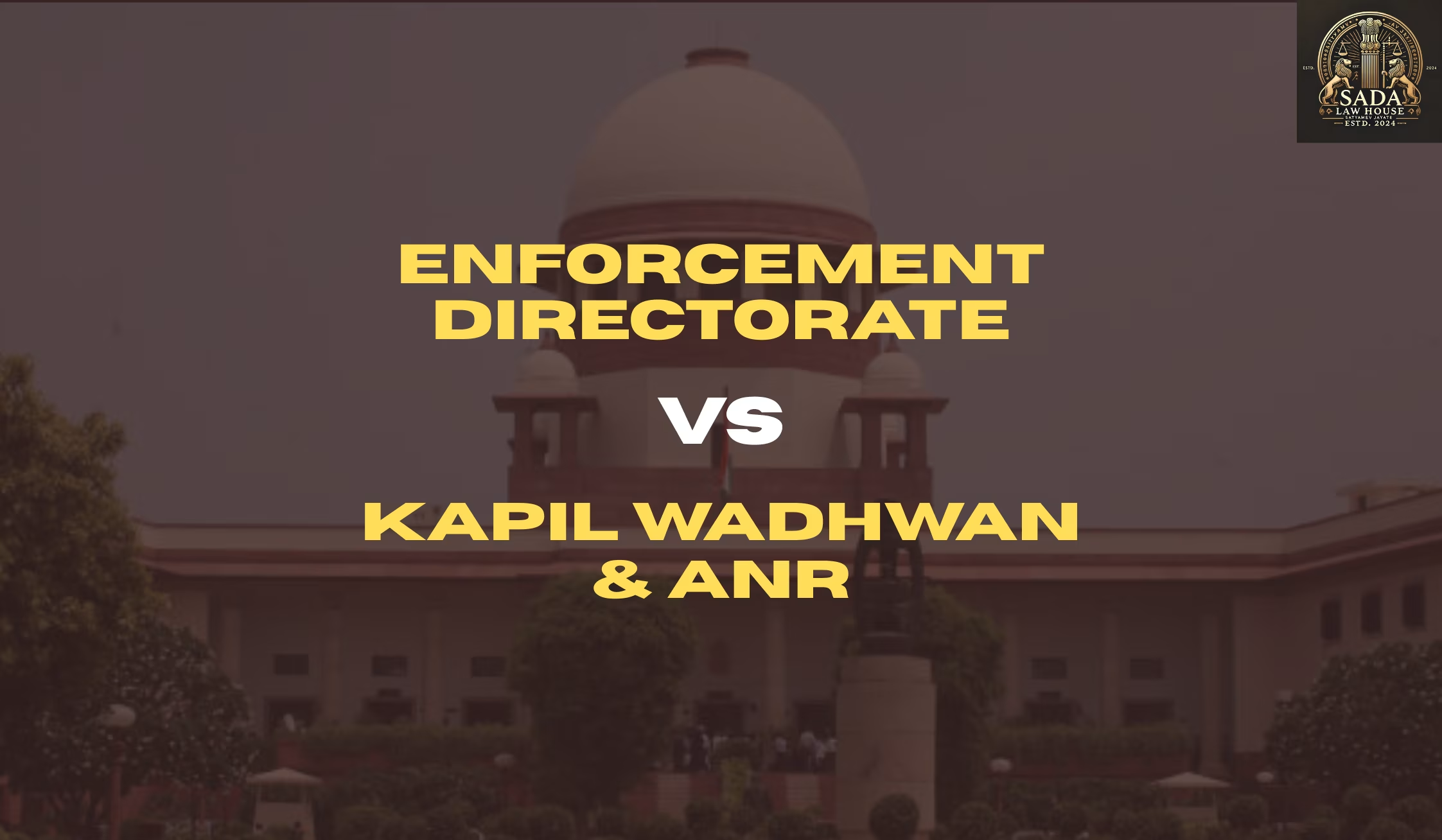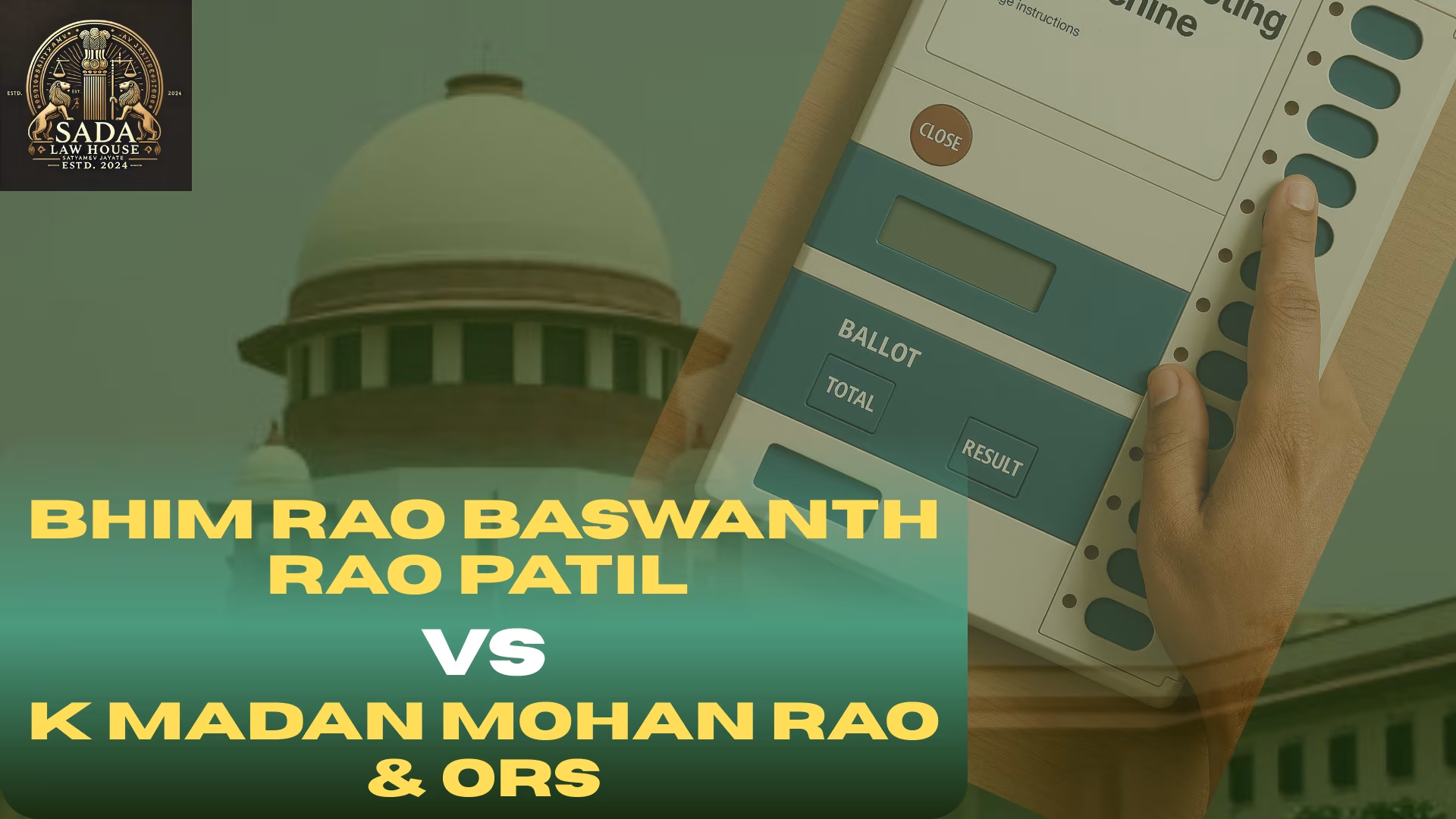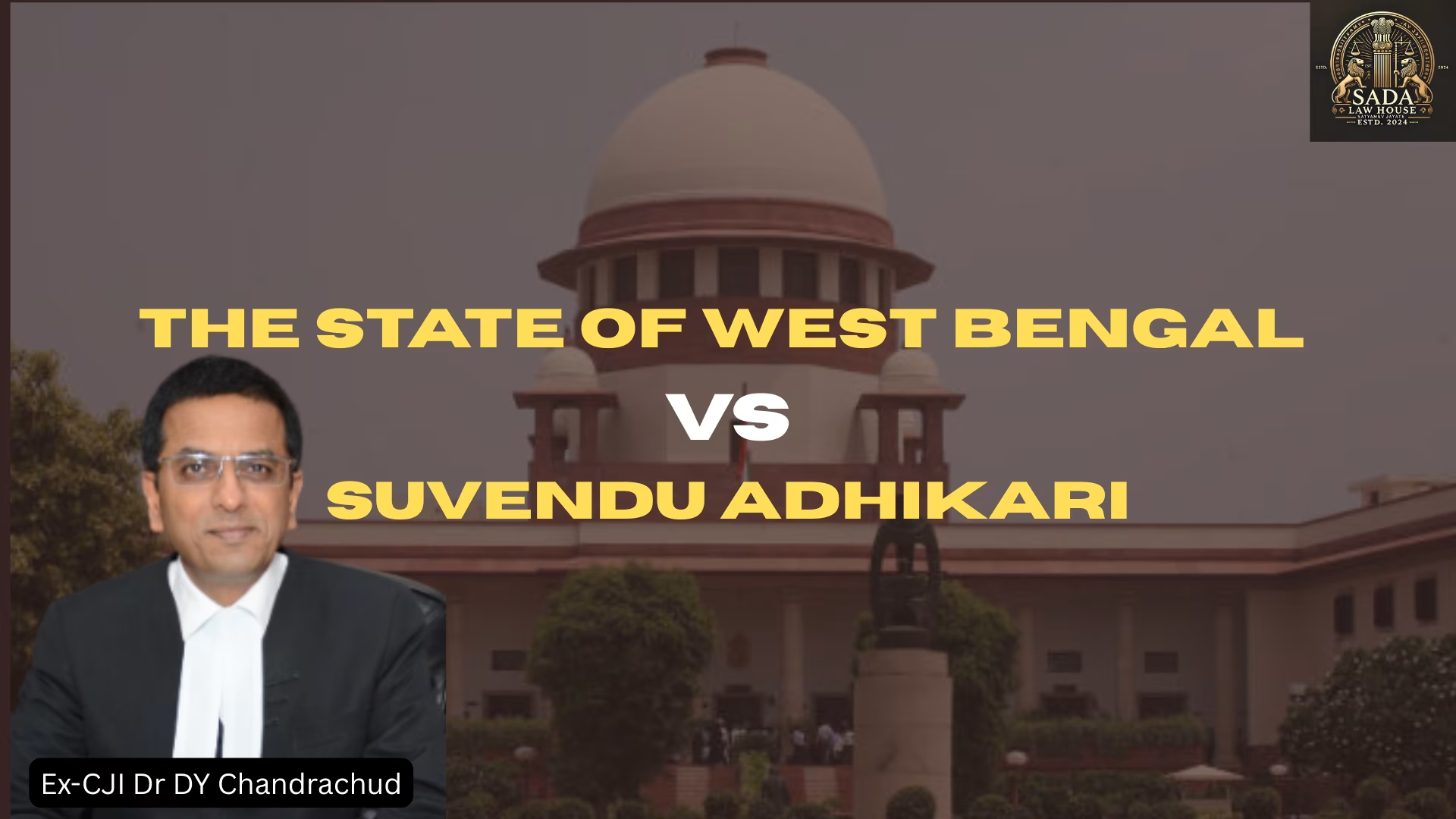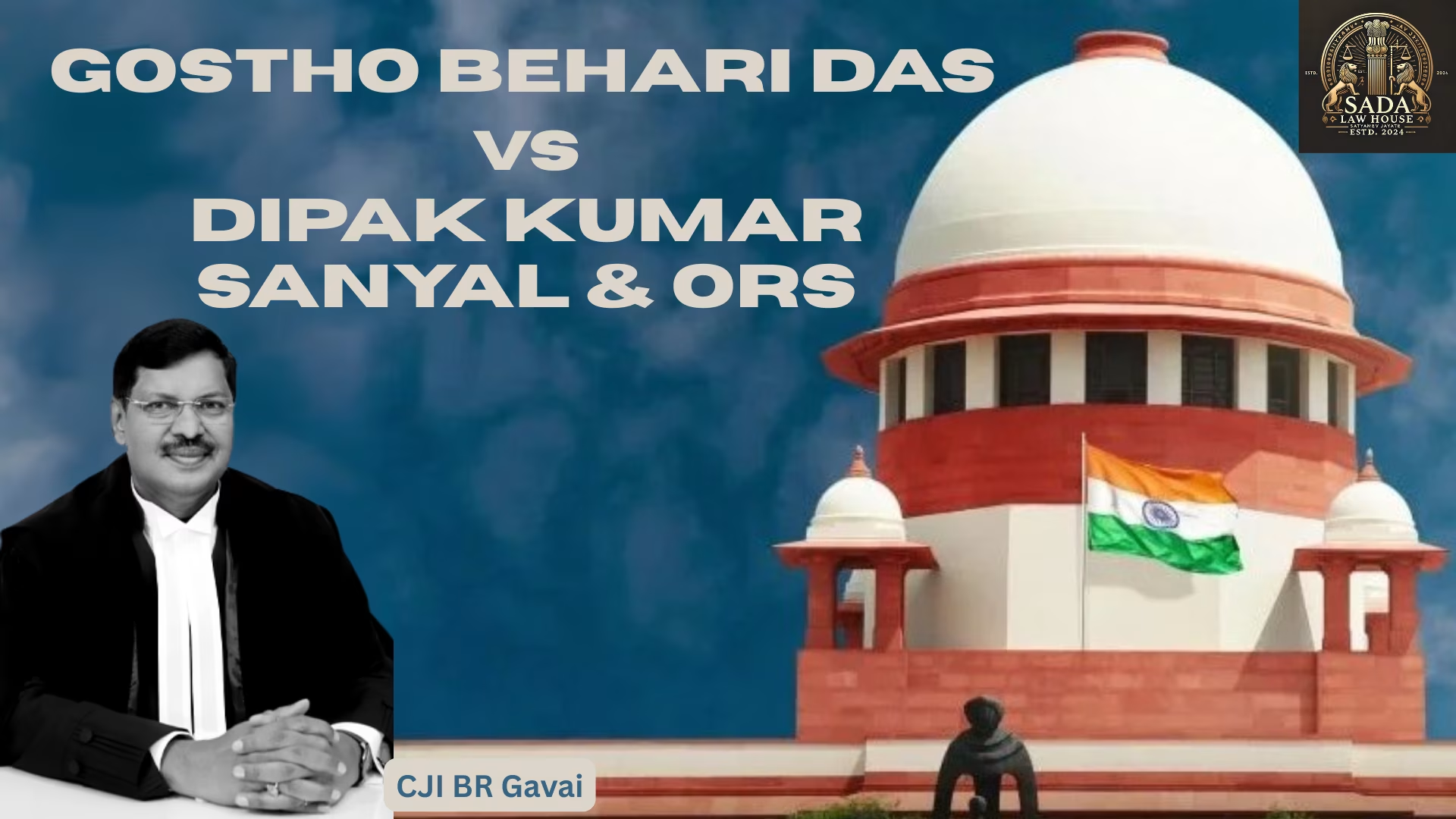Supreme Court Judgment on Enforcement Directorate v. Kapil Wadhawan: Interpretation of Remand Date for Default Bail under Section 167(2) CrPC
- NISHA KUMARI
- 19 June 2025

Explore the landmark Supreme Court of India ruling in Enforcement Directorate v. Kapil Wadhawan (2023) on the interpretation of remand dates for default bail under Section 167(2) Criminal Procedure Code (CrPC). Understand the implications for Prevention of Money Laundering Act (PMLA) cases and personal liberty protections.
Introduction to ED v. Kapil Wadhawan Case
The Supreme Court of India’s decision in Enforcement Directorate v. Kapil Wadhawan & Anr (2023) has significant implications for criminal procedure law, especially relating to default bail under the Prevention of Money Laundering Act (PMLA), 2002. This case clarifies whether the remand date should be included or excluded in the 60-day period prescribed under Section 167(2) of the Criminal Procedure Code (CrPC).
Background and Facts of the Case
In May 2020, Kapil Wadhawan and Dheeraj Wadhawan, promoters of Dewan Housing Finance Limited (DHFL), were arrested on money laundering charges. They were remanded to judicial custody, triggering the 60-day investigation period limit under Section 167(2) CrPC.
Date of arrest: 10 May 2020
Remand to police custody: 14 May 2020
Charge sheet filed: 13 July 2020
Default bail claim: Filed on 13 July 2020 due to alleged delay beyond the 60-day period
The key legal question arose over whether the remand day should be counted in calculating the investigation period.
Legal Issue: Inclusion or Exclusion of Remand Date for Default Bail
The Enforcement Directorate (ED) argued that the remand date should be excluded, making their filing within the 60-day deadline. Conversely, the accused contended the remand date must be included, thus entitling them to default bail.
Special Court ruling: Excluded remand date, denied bail
Bombay High Court ruling: Included remand date, granted default bail (Bombay High Court)
Supreme Court referral: To resolve this conflicting interpretation
Supreme Court Judgment Highlights
The Supreme Court affirmed that:
1. Established Legal Precedent Must Be Followed
The court referred to Chaganti Satyanarayan v. State of A.P, emphasizing that the 60/90-day period for filing charge sheets under Section 167(2) CrPC must include the date of the first remand. Ignoring this principle disrupts legal consistency and predictability.
2. Protection of Fundamental Rights under Article 21
Default bail safeguards an accused’s right to personal liberty under Article 21 of the Constitution of India. The Court reaffirmed that statutory timelines for investigation cannot override these fundamental rights.
3. Legislative Intent of Section 167(2)(a) CrPC
The Court highlighted the legislative purpose behind amendments to Section 167, confirming that detention authorization by a magistrate begins on the remand date, which should be counted towards the investigation period.
Conclusion: Impact on Bail Law and Criminal Procedure
The Supreme Court’s ruling in ED v. Kapil Wadhawan offers much-needed clarity on default bail timelines, reinforcing the judiciary’s commitment to protecting personal liberty while respecting procedural statutes. This judgment serves as a precedent to ensure uniform application of bail laws across India, especially in cases involving serious offences like money laundering.
Case Laws






